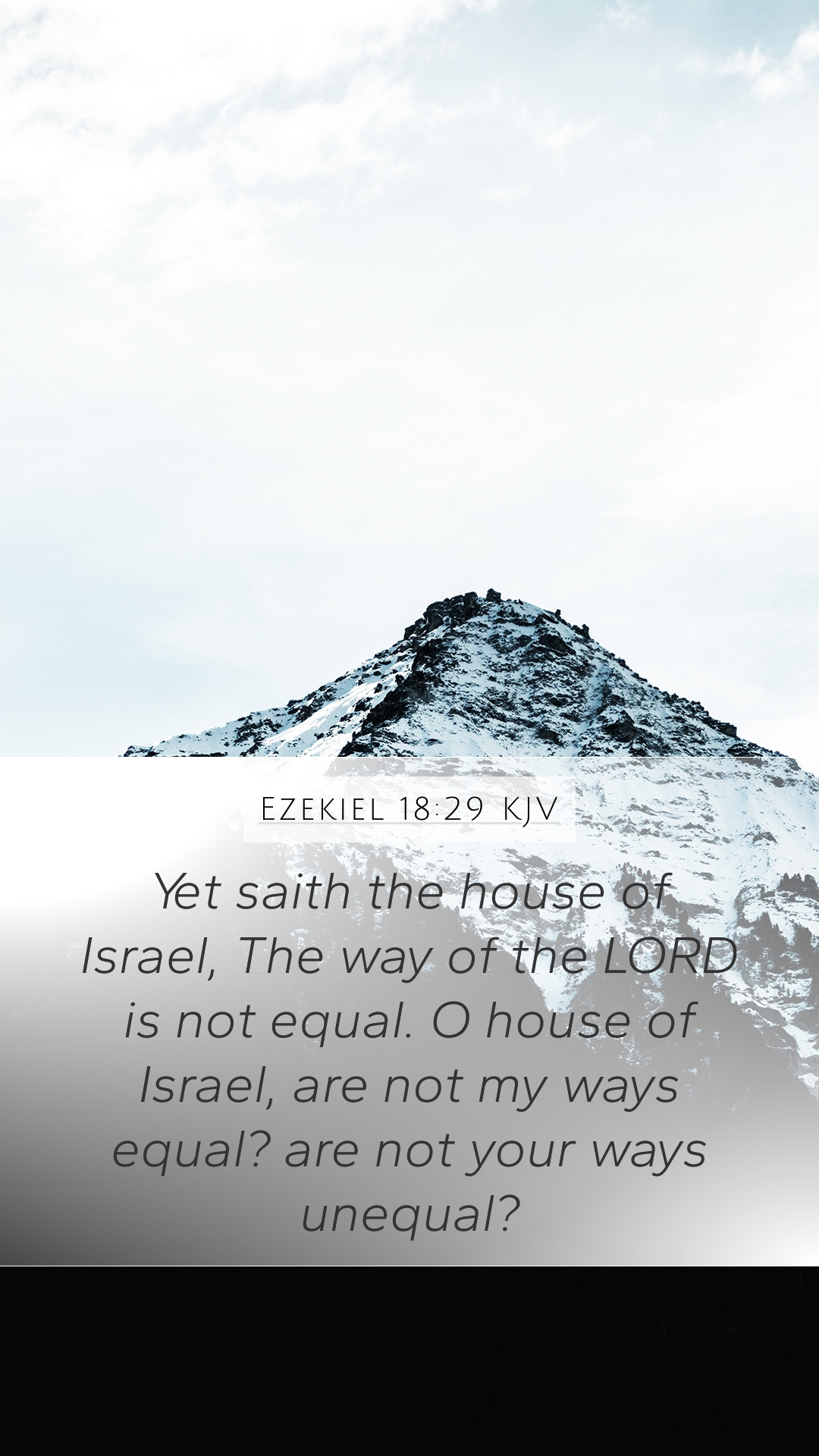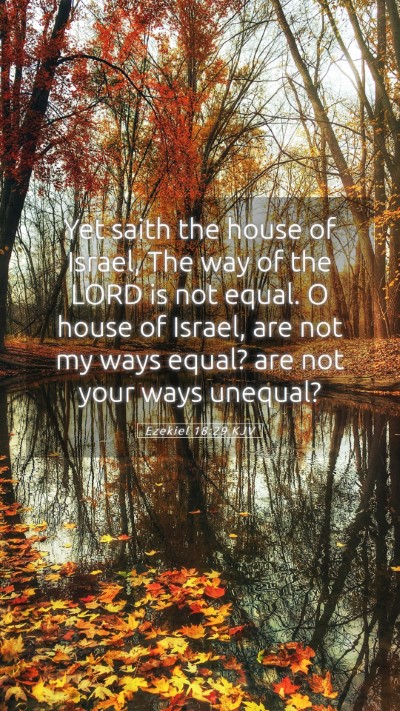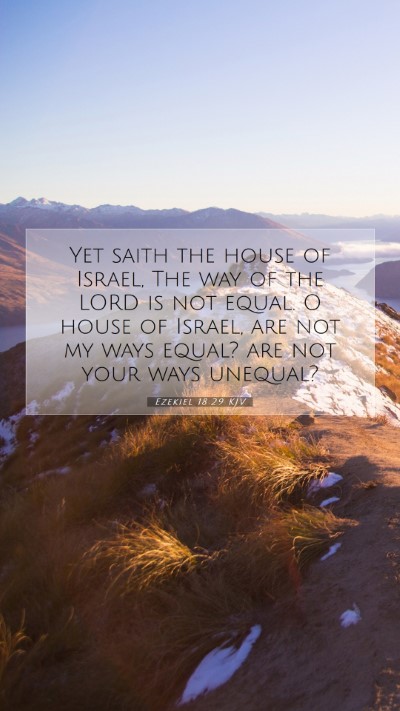Ezekiel 18:29 - Bible Verse Meanings and Interpretations
Verse: "Yet saith the house of Israel, The way of the Lord is not equal. O house of Israel, are not my ways equal? are not your ways unequal?" (Ezekiel 18:29)
This verse is a profound statement addressing the perceived injustice of God's ways compared to human ways. It invites readers to ponder the nature of divine justice and the moral obligations of humanity. Below, we explore various insights derived from esteemed public domain commentaries to enhance the bible verse understanding.
Summary of Insights
- Divine Justice:
Ezekiel emphasizes that God's judgments and ways are inherently just and righteous. Humans often misjudge the equity of God's dealings, leading to a critical attitude.
- Human Perception vs. Divine Reality:
Matthew Henry notes that Israel accuses God of being unjust, demonstrating a misalignment between their understanding and divine righteousness. The phrase "are not my ways equal?" serves to challenge this misconception.
- Self-Examination:
Albert Barnes highlights the need for introspection and humility in considering one's own actions as "unequal" compared to God’s perfect justice. This reflective process is crucial for genuine repentance and understanding.
- Call to Righteousness:
Adam Clarke points out that the verse is a call to repentance for the nation of Israel. It prompts them to recognize their culpability in moral failure and to return to the right path.
- Historical Context:
The context of Ezekiel's prophecy is significant; it addresses the sinful ways of the Israelites during the exile. The insistence on equality in God’s ways serves as a foundational principle for Israel's return to correct living.
- God’s Nature vs. Human Nature:
This verse starkly contrasts God’s nature, which is consistent and just, against the fluctuating and often unjust nature of humanity's actions. The discrepancy leads to the need for divine mercy and correction.
- Encouragement for Discipleship:
The verse encourages believers to align their lives with God's standards, recognizing that the way of the Lord leads to life, while human ways can lead to destruction.
Cross References
- Isaiah 55:8-9: Discusses the difference between God's thoughts and human thoughts.
- Romans 9:20-21: Addresses the potter's authority over the clay, metaphorically illustrating divine sovereignty.
- Micah 6:8: A call to act justly, love mercy, and walk humbly with God, reinforcing the theme of righteousness.
- Psalm 145:17: Affirms the Lord's righteousness in all His ways.
Application and Further Study
Understanding Ezekiel 18:29 calls for deeper bible study insights and engagements with bible study groups. Consider exploring this verse in relation to personal life experiences or contemporary societal issues, asking:
- What does this passage reveal about God’s character?
- In what ways do we perceive God's actions as unjust in our own lives?
- How can this verse shape our understanding of justice in today’s world?
- What are the areas in our lives that need realignment with God's ways?
In preparation for your bible study lessons, use this passage as a gateway to consider broader themes of justice, mercy, and the nature of God. The verse challenges us to reflect deeply on our attitudes towards divine authority and justice.
Conclusion
In Ezekiel 18:29, scripture offers a powerful reminder of the righteousness of God’s ways. As we engage with this verse, we are encouraged towards self-examination and a deeper understanding of divine justice. This verse serves as an invitation to explore the broader themes within scripture and apply them to our daily lives through diligent study and reflection.


